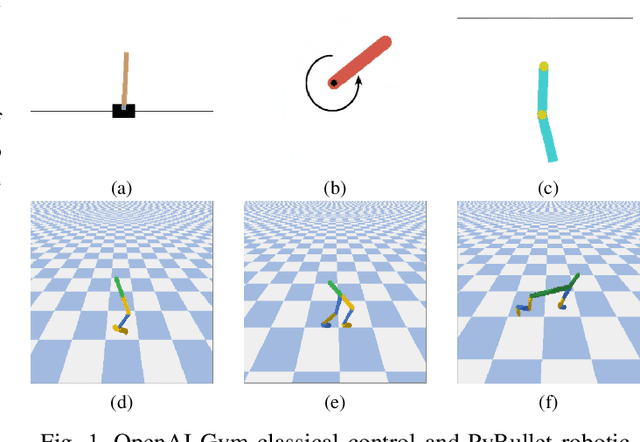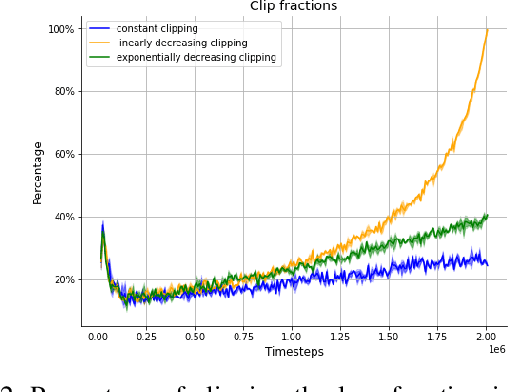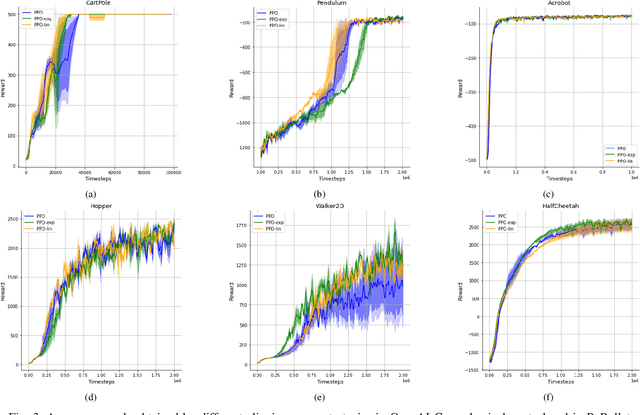Decaying Clipping Range in Proximal Policy Optimization
Paper and Code
Feb 20, 2021



Proximal Policy Optimization (PPO) is among the most widely used algorithms in reinforcement learning, which achieves state-of-the-art performance in many challenging problems. The keys to its success are the reliable policy updates through the clipping mechanism and the multiple epochs of minibatch updates. The aim of this research is to give new simple but effective alternatives to the former. For this, we propose linearly and exponentially decaying clipping range approaches throughout the training. With these, we would like to provide higher exploration at the beginning and stronger restrictions at the end of the learning phase. We investigate their performance in several classical control and locomotive robotic environments. During the analysis, we found that they influence the achieved rewards and are effective alternatives to the constant clipping method in many reinforcement learning tasks.
 Add to Chrome
Add to Chrome Add to Firefox
Add to Firefox Add to Edge
Add to Edge